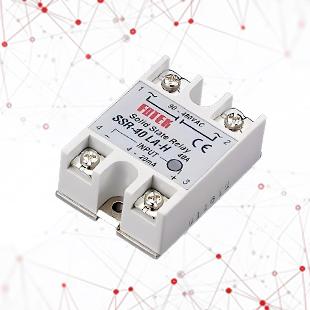
As one of the leading distributors of electronic components, IZZITION E-TECHNOLOGY is dedicated to providing our clients with a vast selection of products that meet the highest industry standards. Our offerings in the Relays category are sourced from top-tier manufacturers, including Omron, Panasonic, TE Connectivity, and others renowned for their reliability and innovation.
A relay is an electromechanical or electronic device that is used to isolate different parts of a circuit or to control a large current circuit with a smaller one. Essentially, it is an electrical switch that opens and closes when actuated by an electromagnet or another electrical stimulus. This functioning allows for automation in electronic circuits, enabling control over various electrical applications without direct human interaction.
The operating principle of a relay involves a small control circuit activating a larger load circuit. When an electric current passes through the coil in the relay, it generates a magnetic field that moves a lever and alters contacts either opening or closing a circuit. This process enables the activation of high-voltage circuits using low-voltage signals or managing complex electrical systems efficiently.
Electromagnetic Relays: These are the most commonly used relays, operating based on the electromagnetic principle. They are versatile and used widely in control panels, industrial devices, and automotive applications due to their robustness and reliability.
Solid State Relays (SSRs): Unlike electromagnetic relays, SSRs have no moving parts, providing silent operation and high-speed performance. They are ideal for applications requiring rapid switching and longevity, such as in PLCs and industrial automation systems.
Reed Relays: Featuring a simple design with contacts enclosed in a glass tube, reed relays are known for their fast operation and are predominantly used in telecommunications and high-frequency applications.
Thermal Relays: Used primarily for overload protection, thermal relays operate based on the heat generated by the current passing through a bimetallic strip. Common applications include motor protection in conveyor belts and other industrial machinery.
Automotive Industry: Relays are extensively used in automobiles for controlling lights, motors, and electronic systems, ensuring efficient management of the vehicle’s electrical loads and protection from overloads and circuit failures.
Industrial Automation: In automated manufacturing and processing industries, relays serve pivotal roles in controlling machinery, employing safety interlocks, and managing power distribution systems effectively.
Telecommunications: Relays, especially reed types, function crucially in switching and communication networks, facilitating signal routing, and protecting circuits from surges.
Home Appliances: Within home appliances, relays manage power supply systems efficiently, controlling operations of heavy-duty appliances like refrigerators and washing machines.
Renewable Energy: In solar and wind power systems, relays ensure the safe and effective management of electrical flows, protecting systems from potential damage caused by fluctuating energy inputs.